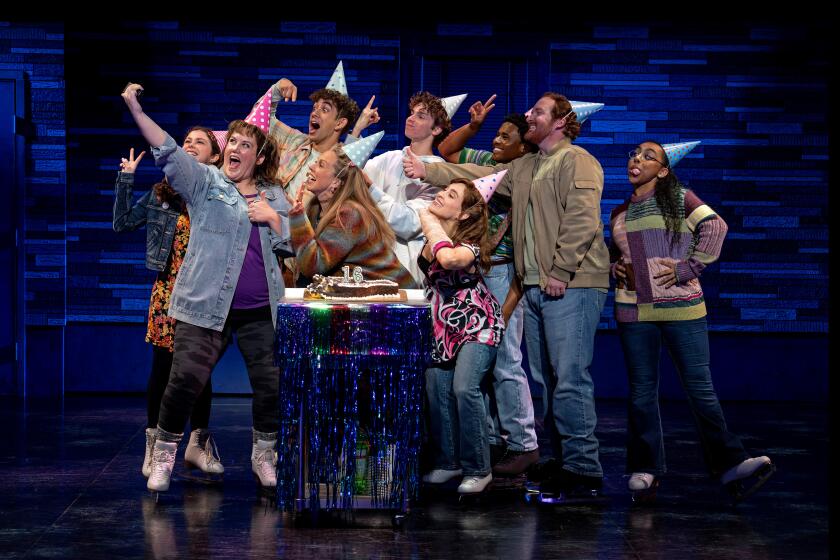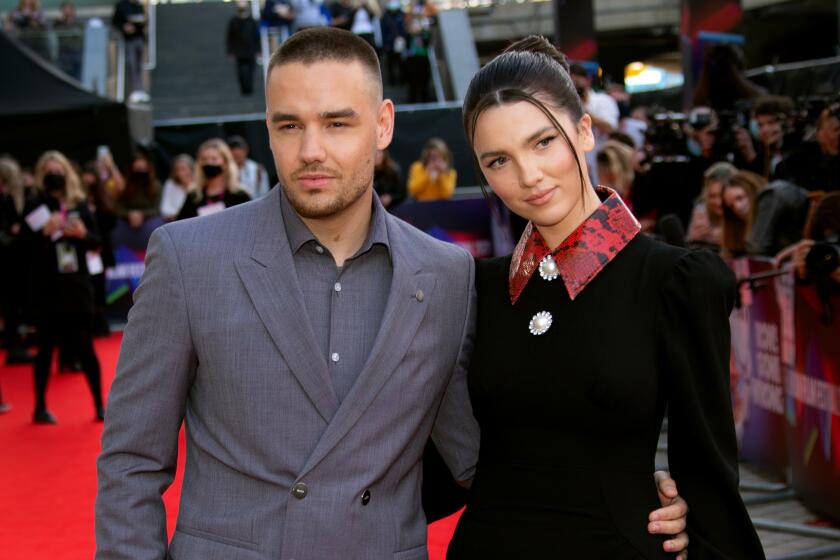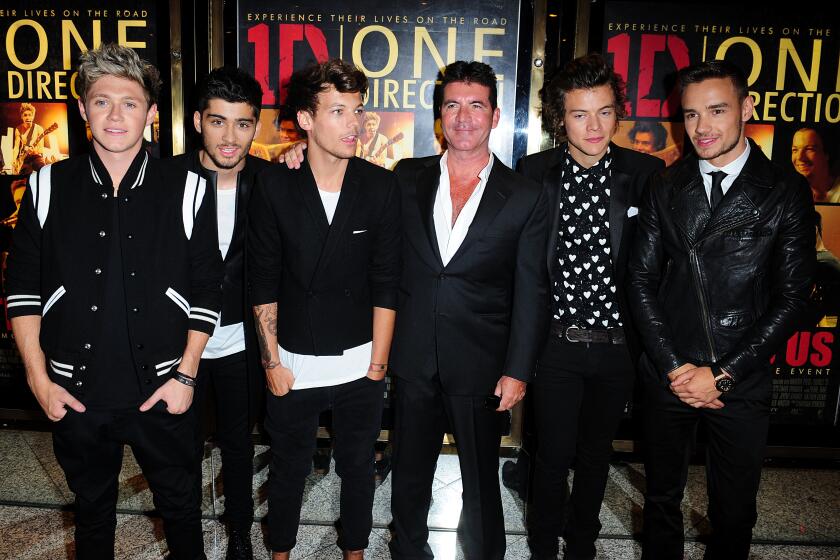MUSIC REVIEW : Madcap Opening for Pops
Bobby McFerrin sees himself as a shaman who can work healing magic with his music. Saturday at Embarcadero Marina Park downtown, he cast his spell over the San Diego Symphony and its audience, conducting several classical selections, improvising with the orchestra and singing several songs on his own.
By the end of the evening, the musicians had spun their cellos and turned in a vocal version of Puccini’s “William Tell Overture.” And the audience had joined McFerrin on impromptu renditions of “John Jacob Jingleheimer Schmidt” and the “Beverly Hillbillies” theme.
Was this any way for a symphony orchestra and its followers to behave? Of course not. Saturday’s gala fund-raiser kick-off for the symphony’s 52-concert SummerPops ’92 series was a weird, hybrid kind of a night that wouldn’t have satisfied jazz or classical purists. At times the McFerrin/symphony match simply failed to work.
But the outdoor crowd of 2,896--some of whom looked skeptical when McFerrin, hair in short dread locks, took the stage in jeans, sandals and a loose white shirt--was soon charmed by his brand of musical shamanism. McFerrin was like a kid in a toy store, with a whole orchestra as his giant toy. He mugged and joked and loved every minute of it.
The program called for several classical selections, and hinted at a few a cappella surprises from McFerrin. Both the orchestra and McFerrin had more than a few surprises in store.
McFerrin, of “Don’t Worry, Be Happy” fame, has enjoyed notoriety mostly in jazz and pop arenas, but he began conducting symphony orchestras two years ago, when his 40th birthday present to himself was a night at the helm of the San Francisco Symphony. Classically trained, he reads music readily, but conducts from memory, without sheet music.
To start the program, McFerrin strolled on stage and plunged the orchestra into Bizet’s “March of the Toreadors.”
After this opener, he paused, baton tucked in his ‘do, to explain his longtime love of classical music.
Rachmaninoff was the first music that made him cry, he said, and it was the classics that first opened him up to the world of music before he was swept away by Sam Cooke, Jimi Hendrix and the rest of the 1960s, and eventually Miles Davis and assorted jazz legends.
McFerrin has performed with Robin Williams and takes on personalities the way Williams does. He introduced the next piece, Faure’s “Pavane, Opus 50” in a hick country voice, pronouncing it “Puh-vaaane.”
Cordless mike in one hand, baton in the other, McFerrin used his voice as a lead instrument. His voice effectively carried the moody, signature melody, with a range and tone reminiscent of flutes or other woodwinds. There were beautiful, seamless segues from McFerrin’s voice to the woodwinds.
McFerrin switched to a stuffy, Laurence Olivier-type voice to announce his duet with cellist Mary Oda Szanto on Vivaldi’s “Concerto in g minor for Two Cellos, RV. 531.”
Szanto looked timid and hesitant, and while McFerrin remained his usual relaxed, upbeat self--”Let’s boogie, Mary,” he said--he never managed to establish much of a rapport, although he tried his darndest by improvising. On this piece, especially, McFerrin’s voice diluted the classical material, instead of transforming it into something fresh and exciting.
The evening’s most entertaining moments came when the orchestra left the stage and McFerrin performed as a self-contained orchestra. Nothing could have prepared the throng for his spontaneous solo medley.
He began with one of his patented chest-slapping improvisations, alternating his voice between thumping bass and soaring, melodic improvisation. Then he worked his way through audience participation versions of “John Jacob Jingleheimer Schmidt” and the “Beverly Hillbillies.”
Finally, he did an abbreviated “The Wizard of Oz,” complete with Munchkins, witches and snatches of most of the songs. At the wicked witch’s climactic moment, he doused himself with Perrier and acted as if melting down.
After intermission, radio personality Joe Bauer conducted the symphony, in exaggerated Steve Martin fashion, through John Phillip Sousa’s “Stars and Stripes Forever,” with cellists and violists, now in synch with the spirit of the evening, spinning their instruments.
Then McFerrin, having changed into a black suit, came back out to lead the symphony through the first and third movements of Tchaikovsky’s “Symphony No. 6 in B minor, Opus 74 (Pathetique).”
The evening’s surprise climax came as McFerrin conducted a section of Khachaturian’s ‘Saber Dance’ from the ballet “Gayane” as fireworks lit up the night sky over the bay. He returned for an encore, leading a sing-a-long of the theme song (M-I-C . . . K-E-Y) from the old “Mickey Mouse Club” television show.
In a way, it was a Mickey Mouse sort of an evening. The classical music was undercut by McFerrin’s antics, and his vocal participation ranged from amazing to merely amusing. His diversions into madcap humor grew tiresome for those more interested in his incredible musical skills.
Even so, the musicians were taken with him. This was the first time such an untraditional outsider has conducted the symphony, and the players reportedly were impressed.
“This is pretty unusual territory for them, but they were wildly enthusiastic,” reported Drew Cady, the orchestra’s operations director. “The orchestra loved him, they really enjoyed the experience, he was very well received. He turned out to be an exceptionally competent musician. He had no difficulty rehearsing the orchestra through the repertoire, and handled himself admirably on the podium.”
More to Read
The biggest entertainment stories
Get our big stories about Hollywood, film, television, music, arts, culture and more right in your inbox as soon as they publish.
You may occasionally receive promotional content from the Los Angeles Times.










